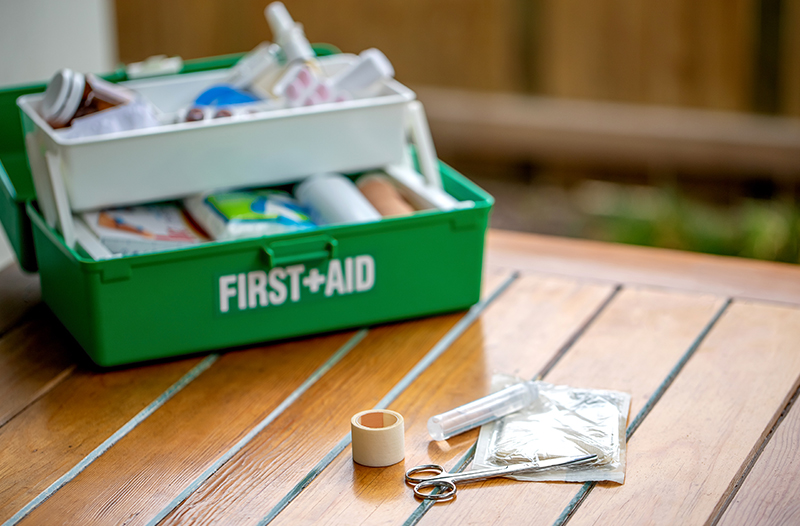A well-stocked medicine cabinet is more than a convenience—it’s a crucial part of your family’s health and safety plan. Whether you’re dealing with a minor cut or a sudden headache, having the right first aid supplies on hand can save time, reduce stress, and help prevent complications. Below is a comprehensive guide to the essential items many people forget to include in their first aid kit.
Antiseptic Solution or Wipes
Cleaning a cut or wound right away is the first step towards proper wound care. Antiseptic solutions or wipes help kill germs and prevent infections. Make sure you opt for products that are gentle on the skin but strong enough to disinfect.
Keep the solution or wipes in a cool, dry place to maintain effectiveness. If you opt for wipes, ensure the pack is sealed properly after use to prevent them from drying out.
Antibiotic Ointment
After disinfecting a wound, applying antibiotic ointment is a smart move. This helps form a barrier against bacteria and supports quicker healing.
Use a small amount on clean skin—more ointment doesn’t necessarily mean faster healing and can sometimes irritate sensitive skin.
Assorted Bandages and Gauze
From minor cuts to blisters and more serious scrapes, bandages come in handy for all sorts of injuries. Gauze pads are particularly useful for larger wounds or those that need extra protection.
What to Include:
- Adhesive bandages in multiple sizes.
- Gauze pads (individually wrapped for sterility).
- Medical tape or self-adhesive wrap to secure the gauze.
Digital Thermometer
Fevers often indicate that your body is fighting an infection. An accurate, reliable digital thermometer can help you decide whether you need further medical attention, especially for children.
Types to Consider:
- Oral thermometers: Great for adults and older children.
- Ear thermometers or forehead scanners: Often more comfortable for younger kids.
Over-the-counter (OTC) Medications
OTC medications are your go-to remedies for everyday ailments—think headaches, indigestion, minor aches, and allergies.
Must-Haves:
- Pain relievers such as paracetamol or ibuprofen.
- Antihistamines for allergy relief.
- Antacids to calm heartburn or mild indigestion.
- Cough and cold medicines (if suitable for household members).
Important Reminder:
Always follow the recommended dosage instructions and check the expiry dates regularly. If you have underlying conditions or take other medications, consult a pharmacist or doctor for guidance.
Tweezers and Scissors
A pair of good-quality tweezers is essential for removing splinters, ticks, or small bits of debris. Scissors help you cut gauze, tape, or even clothing in case of an emergency.
Keep them clean and sanitise with rubbing alcohol after each use to prevent contamination.
Instant Pain Relief Sprays or Gels
These products are great for instant relief from muscle aches, joint pain, or minor sports injuries. They’re quick to apply and provide cooling or warming relief as needed.
Keep them away from direct sunlight and high temperatures to preserve their effectiveness.
Eye Drops
Eye irritations from dust, pollen, or mild infections are common. A bottle of sterile, over-the-counter eye drops can help flush out debris and soothe redness or dryness.
Avoid sharing eye drops to prevent cross-contamination. Discard them once they’ve reached their expiry date.
Hand Sanitiser and Disposable Gloves
Keeping your hands clean before and after treating a wound is crucial. Hand sanitiser and disposable gloves reduce the risk of passing germs between you and the patient.
If someone in your home has a known infection or contagious illness, wearing gloves adds an extra layer of protection.
Being prepared isn’t about expecting the worst; it’s about having peace of mind. From an antiseptic solution to disposable gloves, each item in your medicine cabinet plays a role in preventing infections, easing discomfort, and safeguarding your loved ones. Remember to check expiration dates regularly and replace items as needed. If you’re unsure about any product—whether it’s antibiotic ointment, over-the-counter medications, or eye drops—don’t hesitate to consult any Olive Pharmacy at any of our branches in Kampala or Mbarara.

